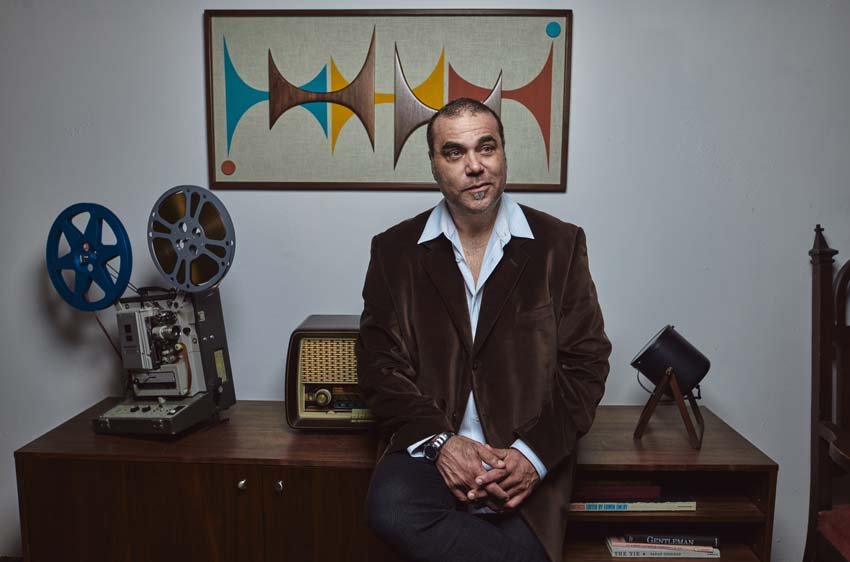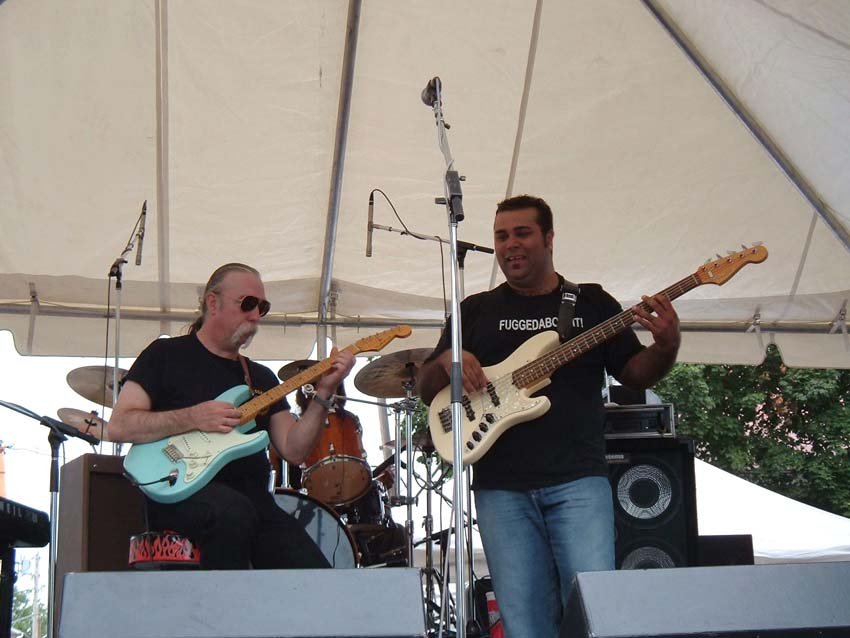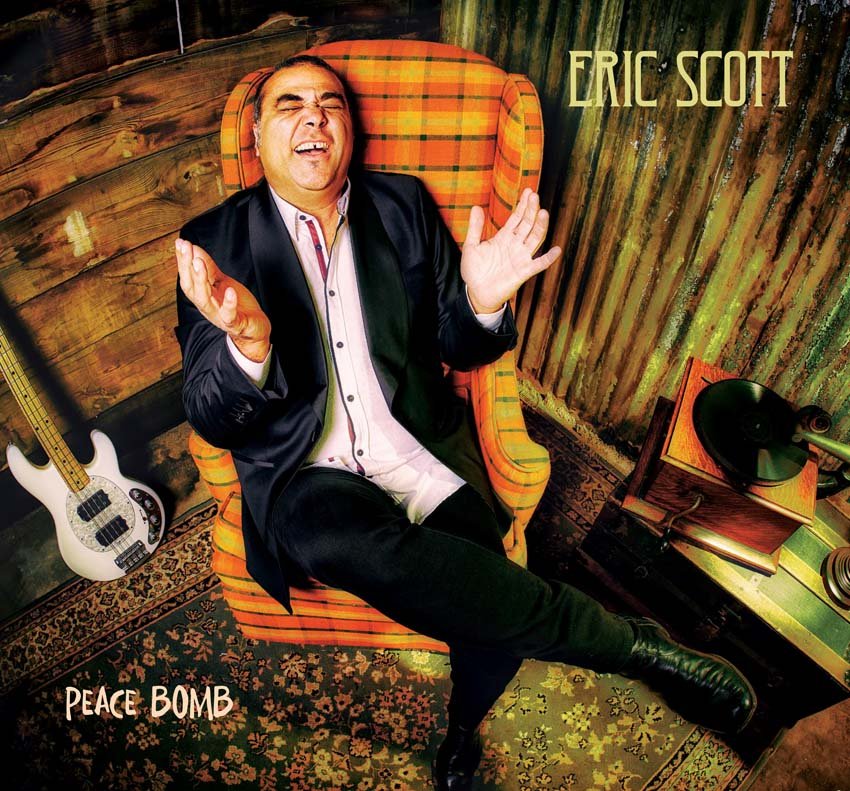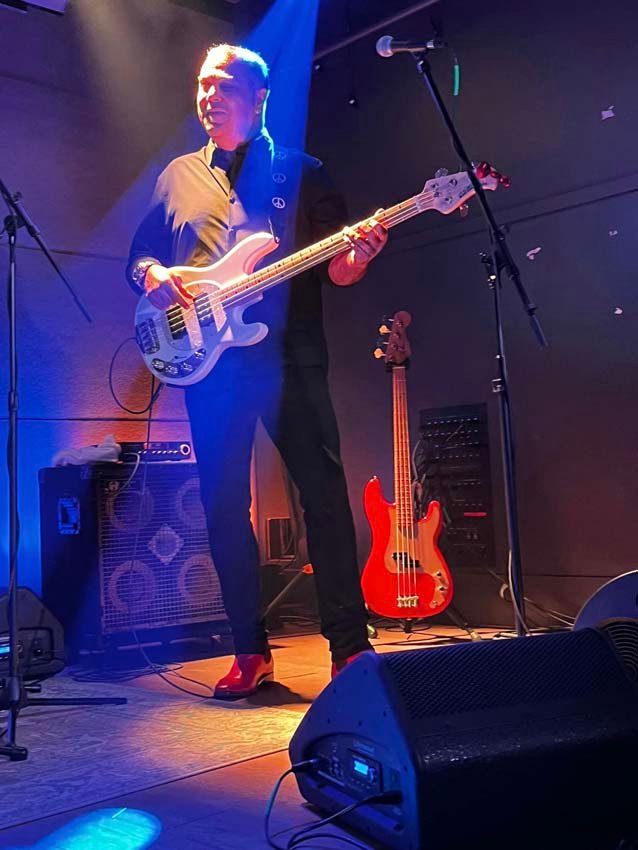+ By Rahsaan “Wordslave” Eldridge + Photos courtesy of Eric Scott
I can look in the mirror and see a different me.
Tell me, do you like what you see?
–Eric Scott, from “I Want to Change the World”
Due to varying factors in the atmosphere, such as humidity and water vapor, individual snowflakes form and evolve on their own unique journey as they fall through the air. Consequently, no two snowflakes are exactly the same. According to US Census Bureau estimates, the world’s population has reached eight billion. Each person has their own journey and response to their environment. Each takes their own unique, individual form. Consequently, no two people are exactly the same.
Eric Scott is keenly aware of this. Growing up in Prince George’s County, he remembers when bussing students to schools in different districts was introduced to integrate the public schools. He remembers not feeling welcomed into a building that was previously all white. “The white kids didn’t want us there,” he recalls. “The Black kids didn’t want to be there.” He remembers being asked, “What are you?” by his classmates and not knowing how to respond. Sometimes he would lie, saying he was Italian or Puerto Rican, instead of telling them he was mixed—his father was Black; his mother is white. He didn’t understand why it mattered. He still doesn’t.
Fitting in is not a comfort that Scott has had for much of his life. His mother was a single mom, sometimes working up to three jobs to make ends meet, and his father was incarcerated for much of his childhood, leaving Scott on his own when it came to dealing with his identity issues. Fortunately, he found refuge early in his mother’s eclectic record collection.

“My mom did something crucial for me just by having the record collection she had,” he says. “I don’t know if she planned it or not, but it really just opened up a whole world for me that I just gravitated to. My mom listened to everything—soul, jazz, rock, everything!”
Eventually, Scott went from a listener to a participant. When he was around 11 or 12 years old, he started sneaking in and playing his brother’s bass. Without any history of serious musicians in the family, Scott taught himself how to play, and he has been playing ever since. In high school, he added singing to his repertoire when he joined a band that needed a vocalist. At the time, he had no formal training or experience as a singer, but he wanted to be in a band, and they had a need, so he stepped up to fill it. Shortly thereafter, the band fired its bass player, and suddenly Scott was pulling double duty. His willingness to step up and do his part is a theme that has remained prevalent in his life and music for many years since.
In his early twenties, Scott was part of a rock band in which he was lead singer, bass player, and writer of its original songs. He began gaining confidence as a performer and songwriter as his band, Arson, began to have success around the region. During this time, he began taking voice lessons to strengthen his breathing and vocal technique. He was experiencing increased success as a performer and improving his skills as a vocalist and songwriter, drawing deeply from the influences of legendary artists such as Curtis Mayfield, Marvin Gaye, Prince, Al Green, and Sam Cooke.
One of his most memorable experiences was an encounter with another one of his heroes after a festival performance, opening for James Brown. “We did our set, and then I put my [gear] away, and I stood right by the stage, like ‘I’m not moving until I see James Brown,’” he says. “And then, like magic, up the stairs comes James Brown and his giant bodyguard, and [he] stood right next to me, and I just stood there and soaked it in.”
Scott’s career has spanned over 30 years and taken him all over the world, touring 19 countries and 41 of the 50 states. He’s a familiar face at Annapolis venues like Blackwall Hitch, Rams Head On Stage, and 49 West Coffeehouse, Winebar & Gallery, where he hosts the Izall Goode Songwriter Series.
He’s licensed songs for movies and for network and cable TV. He’s released six albums on his own Itzall Goode Music label, including Peace Bomb, from which the single with the same title made it to thirteenth on the UK Soul Chart Top 30 and stayed there for five weeks. He has a storied career. But all the success did not come without challenges. His struggles with addiction, identity issues, and the absence of his father early in life all played a part in Scott’s continuous search for where he fits in.
Through rehab and counseling, he’s been sober for 30 years, and he was able to make amends with his father and form a relationship before his passing—that was integral in his emotional stability and healing. These days, no one is questioning Scott about the color of his skin and he’s no longer confused by the preposterousness of its relevance.
“I feel what’s going on in the world pretty deeply,” he says. “One of the ways I feel like I can, like, the saying, ‘be the change’ in the world . . . one of the ways I feel like I can have a voice and to share some positivity is through music. I wish I could go out and wave a magic wand and make things better for everybody, but I can’t. But I can put my thoughts into song and hope that they reach people.”
Music has maintained its importance as a refuge for the soul singer. Themes of love and heartbreak, self-empowerment, and world peace permeate Scott’s music. The influence of his musical heroes is undeniable. The commonality he cites between them is their fearlessness in their approach to the craft as well their willingness to effect change on both micro and macro levels. In addition to his artistic inspirations, Dr. Martin Luther King, Jr. and Nelson Mandela are his North Stars for positive contributions to the betterment of society.
Scott’s alignment with his heroes’ mission is evident in both his composition and performance. For Curtis Mayfield’s “We People Who Are Darker Than Blue,” there’s Scott’s “Red.” For Al Green’s “Love and Happiness,” there’s “Scene of the Crime.” For Marvin Gaye’s “What’s Going On,” there’s “Peace Bomb.”
For three decades and counting, Scott has found his place in the pantheon of great songwriters and musicians who wish to change the world through lyric and groove. In a world that’s seemingly more and more unsettled, Scott’s brand of musicianship is as important now as it’s ever been. That type of care makes him a rare breed: unique, like a snowflake falling from the sky. To that child listening to his mother’s records, wondering where he fits in, the answer is that he doesn’t—he stands out.








